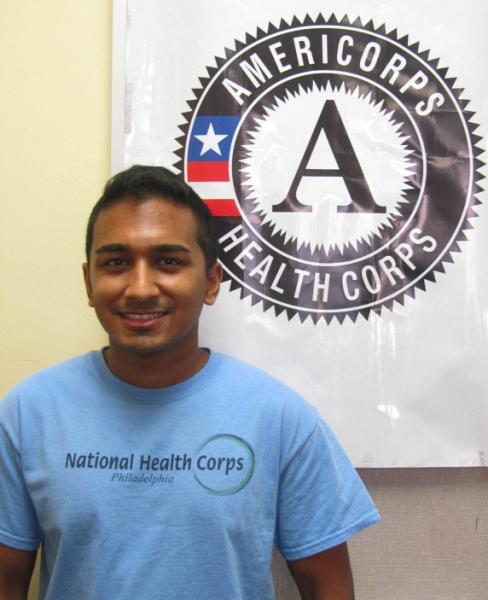A Physician’s Perspective on Primary Care for Philadelphia’s Underserved
If he had to pick a different field of work, Dr. Eric Goren could see himself as a high school history teacher. Although he decided to become a primary care physician, Dr. Goren’s passion for teaching remains a vital part of his career. As an assistant professor at the University of Pennsylvania (Penn), Dr. Goren is a mentor and teacher to the next generation of physicians.
Dr. Goren believes the most pressing challenges in primary care stem from a shortage of talented physicians, nurses, and social workers. At his academic appointment at Penn, Dr. Goren frequently sees students come into medical school with a reported interest in primary care only to later have that interest dissipate. He insists that, “unless we’re getting the best and the brightest into care for the underserved and primary care then even if the system around us is fixed… I think we’re still going to have a problem”.
Goren strives to show his students they can “be a successful academic physician and still do primary care”. He advises those with an interest in working with the underserved to make sure their interest is sincere and deep, and if it is to explore their interest proactively, particularly because these opportunities can be difficult to find. While he never pushes his students into a particular field of medicine, he feels part of his job as a professor at Penn is to provide his students high quality mentorship to cultivate their interest in primary care and care for the underserved. His efforts have not gone unnoticed; he has been the recipient of numerous teaching awards. Furthermore, he has observed a steady number of students at Penn who are pursuing a career in primary care and care for the underserved.
As a clinician, Dr. Goren works at Health Center 3 and 4 and is a clinical director of the United Community Clinic, a student run health clinic in West Philadelphia. Given his extensive experience working with Philadelphia’s medically underserved, I asked Dr. Eric Goren to provide his clinical perspective on the effect of the Affordable Care Act (ACA) on healthcare for underserved communities in Philadelphia. He observed that “there have definitely been some positives,” specifically the implementation of “meaningful use incentives.” These incentives provide payments to healthcare providers who demonstrate meaningful use of an electronic health record (EHR).
The incentives encouraged many providers, including Philadelphia’s Ambulatory Health Centers, to adopt an EHR, which Dr. Goren says will help alleviate the challenges of using paper charts. Without these incentives, Dr. Goren believes that it could have taken Philadelphia Health Centers many years to switch to an EHR. He noted that “these are the things that are not reported in the media about the ACA, but are so essential” to improving healthcare.
Conversely, Goren sees the effectiveness of the ACA in providing affordable universal healthcare as “a mixed bag.” In Pennsylvania, prior to the recent Medicaid expansion, there were many low income patients seeking coverage through healthcare exchanges. Although access to insurance existed, the plans they could afford “were essentially catastrophic coverage and their access to specialists…was still at significant cost.”
For example, Dr. Goren explains that to see a gastroenterologist for a colonoscopy, some of his patients needed to pay a $50 copay in addition to expensive premium payments, making specialist care cost prohibitive. Unfortunately, there is currently no short term solution to this problem that Dr. Goren can apply as a clinician. This is because Dr. Goren can’t provide his insured patients a city referral, which is a referral that allows uninsured patients to receive specialist care and diagnostic procedures at the expense of the city.
While Dr. Goren can’t always ensure patients receive affordable specialist care, he does his best to make sure that cost is not a barrier for his patients to access the medications they need. To this end, he refers uninsured patients to the Patient Assistance Program (PAP), a service provided to city Health Centers by members of the Philadelphia Health Corps (PHC) that helps uninsured patients receive medications free of cost. Dr. Goren also avoids prescribing newer and more expensive medications when older medications work just as well. He emphasizes it is indeed possible to provide patients top tier medical care that is cost effective in this manner.
Ultimately, Dr. Goren feels that despite the challenges of primary care, his field of work is very meaningful. He enjoys developing strong relationships with his patients and collaborating with them to make life choices that will improve their health. “We all have someone in our lives that is aging and it’s really gratifying to know that I am making a difference in their lives that will help them be around longer for their kids or their grandkids for an extra 10,15, 20 years… It’s a privilege and I don’t think there are many jobs where you get to do that on a daily basis.”

This post was written by PHC member Varun Ayyaswami.
Varun serves at the Philadelphia Department of Public Health - Health Center #4 as a Patient Assistance Program Advocate.
